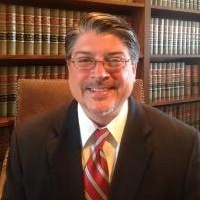Roland Collection Lawyer, Arkansas
Sponsored Law Firm
-
 x
x

Click For More Info:
-
Wakhisi-Douglas LLC
400 West Capitol Avenue Suite 1200 Little Rock, AR 72201» view mapBankruptcy & Debt We Fight Back and Win in Court
We’ve won hundreds of cases, and we’ve developed a reputation for resolving complex disputes favorably for our clients.
800-978-8941
Stephen B. Niswanger
✓ VERIFIEDLawsuit & Dispute, Collection, Real Estate, Contract, Construction
Steve Niswanger is the managing member of the firm and has about 20 years experience in business and general litigation and transactions, with an emph... (more)
Lyndsey D. Dilks
Bankruptcy, Bankruptcy Litigation, Collection, Commercial Bankruptcy
Status: In Good Standing
James Dale Burns
Criminal, Civil Rights, Insurance, Collection, Consumer Bankruptcy
Status: In Good Standing Licensed: 18 Years
Jillian Herrick Wilson
Commercial Real Estate, Collection, Bankruptcy
Status: In Good Standing Licensed: 11 Years
Kathryn Lachowsky Khan
Commercial Real Estate, Collection, Bankruptcy
Status: In Good Standing Licensed: 13 Years
Jillian Herrick Wilson
Commercial Real Estate, Employment Discrimination, Collection, Bankruptcy
Status: In Good Standing Licensed: 11 Years
 Chuck Douglas Little Rock, AR
Chuck Douglas Little Rock, AR Practice AreasExpertise
Practice AreasExpertise

